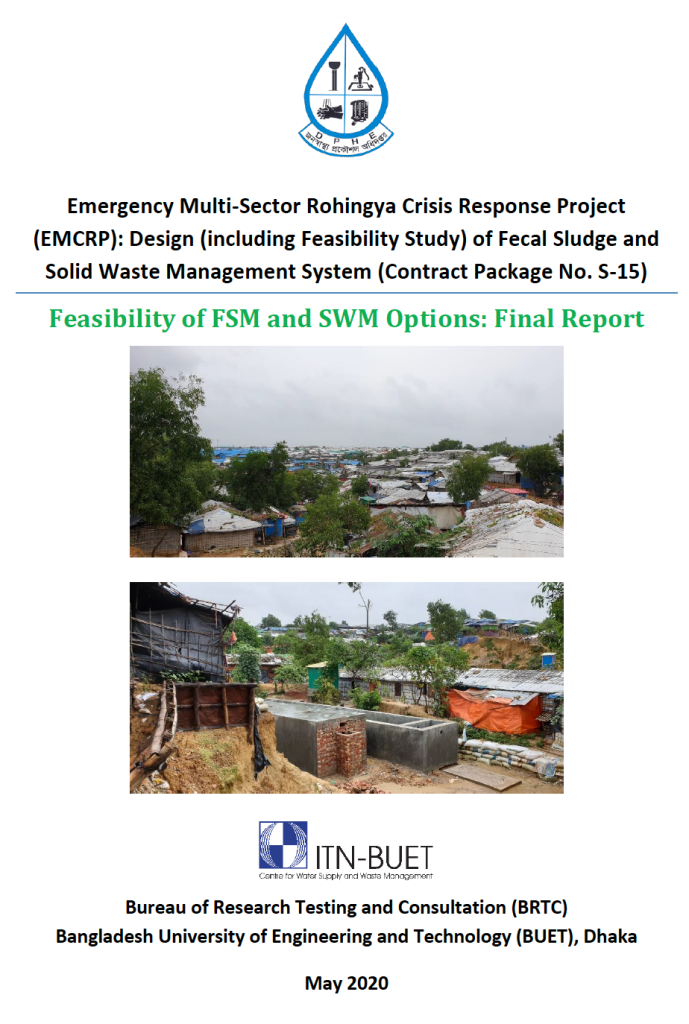Feasibility of FSM and SWM Options - Final Report
Author: Bureau of Research Testing and Consultation (BRTC), Bangladesh University of Engineering and Technology (BUET)
Year: 2020
Since August of 2017, extreme violence in Rakhine State of Myanmar has driven an estimated 646,000 people from the Rohingya community across the border into the Cox’s Bazar District of Bangladesh. The new arrivals have joined some 212,500 Rohingya in Cox’s Bazar, who had fled in earlier waves of displacement. Currently, an estimated 911,634 Displaced Rohingya Population (DRP) are in Cox’s Bazar. In Ukhhia and Teknaf, the two Upazilas where most of the DRP have settled, they outnumber the host community. There are five Camps in Teknaf, where an estimated 125,270 DRP are living. The remaining DRP (estimated at 770,032) are living in 29 Camps/Settlements in Ukhia; the Camps located at Kutupalong Expansion site houses the highest number of DRP, about 631,495.
Access to improved drinking water and hygienic sanitation facilities including adequate management of fecal sludge is a priority for DRP population. In this situation, the Emergency Multi-Sector Rohingya Crisis Response Project (EMCRP) of DPHE plans to support improved access to safe water and sanitation as well as hygiene promotion in a gender and socially inclusive manner. The DPHE has entered into an agreement with Bureau of Research Testing and Consultation (BRTC) of BUET for consultancy service for design (including feasibility study) of fecal sludge and solid waste management system. The specific objectives of the consultancy service included:
- Feasibility of options and approaches for fecal sludge and solid waste management in the DRP camps;
- Detail engineering design and working drawing of proposed fecal sludge management (FSM) and solid waste management (SWM) facilities;
- Promotion and mobilization of integrated fecal sludge and solid waste management systems including co-composting plant (if found feasible); and
- Identification of construction sites and assisting in preparation of bid documents for procurement of contractors.
This document presents the final report on the feasibility of potential options for fecal sludge management (FSM) and solid waste management (SWM) in Rohingya camps.
Rating
Would you like to see other resources here?
Give us your feedback"*" indicates required fields
Still have questions?
You could not find the information you were looking for? Please contact our helpdesk team of experts for direct and individual support.


